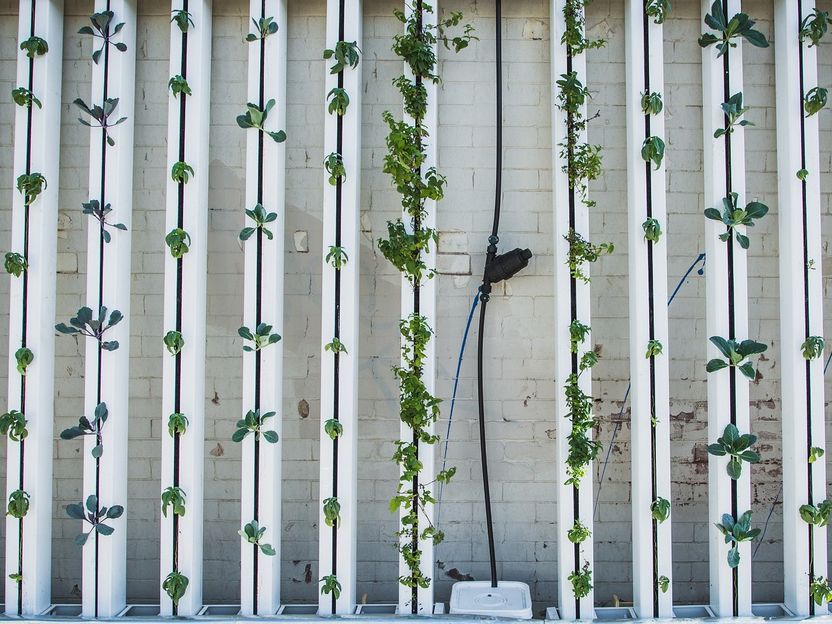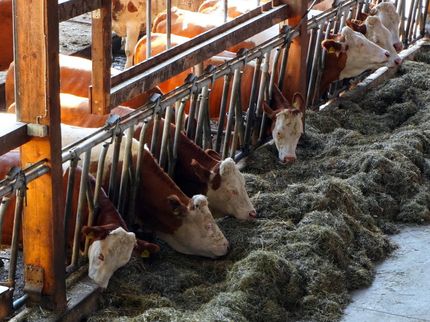Vertical farming as a possible path to food security
Climate crisis and urbanization
In Kulmbach, researchers are working on the food of the future. Prof. Dr. Susanne Baldermann is studying the metabolism of plants and drawing conclusions for a future agriculture that will no longer be restricted to rural areas: "Vertical Farming" in urban areas as a reaction to climate change and soil scarcity is one of the research fields of the Professor of Food Metabolome at the University of Bayreuth's new Faculty of Life Sciences: Food, Nutrition and Health located in Kulmbach.

BrightAgrotech / Pixabay
Providing people with enough healthy food can no longer rely on traditional agriculture alone. On the one hand, climate change poses major problems for food producers in terms of heat resistance, water balance, and pest resistance of plants. On the other hand, more and more people live in cities and have no access to regionally produced, fresh food. In addition, soils in many places are depleted or polluted and unusable for years to come, drinking water is becoming scarce, and political instability is increasing worldwide. Prof. Dr Susanne Baldermann, Professor of Food Metabolome and since the beginning of 2021 working in Kulmbach at the University of Bayreuth's new Faculty of Life Sciences: Food, Nutrition & Health, is researching what alternatives there are to the prevailing agricultural systems in order to feed the world's population with healthy food. Among other things, she has been working for years on "vertical farming" – the indoor cultivation of food plants in plant cultivation cabinets, shelves, or factory halls – and heads the research field Organisms in the "food4future" network at the Leibniz Institute of Vegetable and Ornamental Crops (IGZ) e.V. in Großbeeren.
Those who grow vegetables around the clock on several floors in plant factories have a far greater yield per square metre. A growing world population, especially in urban and peri-urban areas, makes such developments necessary. Because this type of cultivation, with constant temperatures and even lighting, does not depend on the weather or the seasons, the same quality of produce is grown and harvested all year round. The plants do not grow in soil, but on special substrates whose growing containers can be made of recycled plastic, for example. This also requires special plants: "If we want to grow vegetables in underground shafts or on the walls of houses, we have to have exactly the right plants for it, so it's a matter of selecting specific varieties. That's why we try to analyse plants as precisely as possible, assess their components and make statements about their nutritional properties," says Prof. Baldermann.
As soon as the laboratories in Kulmbach are equipped, Prof. Baldermann will integrate the analysis of substances contained in "indoor vegetables and herbs" into her research work. The infrastructure of the University of Bayreuth, including the North Bavarian NMR Centre with its world-leading expertise in the field of nuclear magnetic resonance (NMR) spectroscopy, the Bayreuth Centre of Ecology and Environmental Research (BayCEER), along with the research work carried out by the University's focus areas offer interesting opportunities for joint research work with her colleagues from the University of Bayreuth. Until then, the focus is on research-oriented education about the substances contained in food and their changes along the food supply chain from cultivation to consumption.
Most read news
Topics
Organizations
Other news from the department science

Get the food & beverage industry in your inbox
By submitting this form you agree that LUMITOS AG will send you the newsletter(s) selected above by email. Your data will not be passed on to third parties. Your data will be stored and processed in accordance with our data protection regulations. LUMITOS may contact you by email for the purpose of advertising or market and opinion surveys. You can revoke your consent at any time without giving reasons to LUMITOS AG, Ernst-Augustin-Str. 2, 12489 Berlin, Germany or by e-mail at revoke@lumitos.com with effect for the future. In addition, each email contains a link to unsubscribe from the corresponding newsletter.



























































